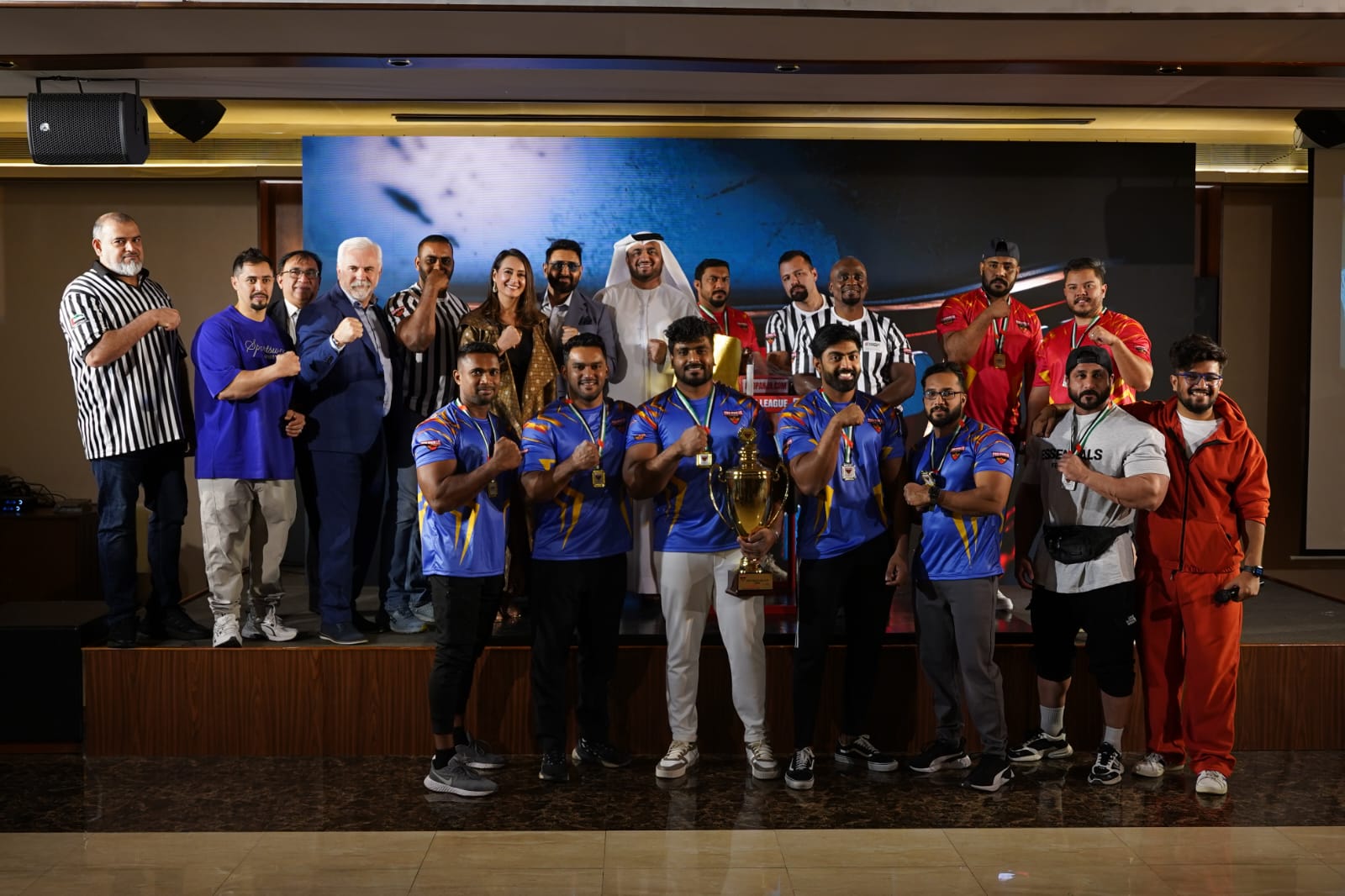India’s premier Arm Wrestling tournament, Pro Panja League, marked a significant milestone as it hosted its first-ever international event, Pro Panja UAE Cup, at the vibrant city of Dubai on April 19th at the India Club.
The event saw some of India’s best ArmWrestlers take on major athletes from the UAE, Kuwait and Pakistan. The matches were sanctioned by the Dubai Sports Council and were technically overseen by the Emirates Body Building and Fitness Federation.
Mr Omar Ali from the Ministry of Sports, Mr Faisal Alzabi, Head of Emirates Body Building and Fitness Federation and Mr Bharat Chachare, CEO of India Club graced the event as chief guests. Also present were Actor and Co-Founder of the Pro Panja League, Mr. Parvinn Dabass and Bollywood star and President of the People’s ArmWrestling Federation India, Mrs. Preeti Jhangiani.
In the first match, Talal Ali of Bahrain enjoyed a dominant 3-0 win over Arjun Menon of India. Next, Prasad Kanhangad of UAE beat compatriot Ramboo 3-0. India’s Umesh Kattuparambil and Asker Ali defeated Ameer Alturkumani of Kuwait and Ali Sehi of the UAE 3-0, respectively.
Lastly, in the highly anticipated clash between India’s Mazahir Saidu and Umer Awan of Pakistan, the former prevailed 3-0. After the crucial win, an elated Mazahir said, “It was an amazing experience competing in Pro Panja League’s inaugural International event. This was an important match for me because I was competing against a Pakistani ArmWrestler. India vs Pakistan is the biggest rivalry in sports and getting a win for India was truly special.”
After winning his match against Arjun Menon, Bahraini ArmWrestler Talal Ali called out Asker Ali for a match. Talal is the current Bahrain National Champion, three-time Arab Champion and the GCC Champion. Asker Ali accepted his challenge after winning his match.
After the successful event, Parvinn Dabass stated, “Couldn’t be happier with the welcome Pro Panja League has received here in Dubai. Seeing Indian ArmWrestlers compete with international stars was truly a special moment for me and I would like to thank India Club for being such a grand host and the Pro Panja UAE Cup is going to become a regular fixture on the International ArmWrestling Calendar based in the UAE.”
Preeti Jhanghiani spoke on similar lines and said, “ This event is a testament to the sport’s growing popularity and we can’t wait to bring more such international events on an even larger scale to the fans. The energy in Dubai was electric and such a reception motivates us to grow the sport even more and dream bigger.”

